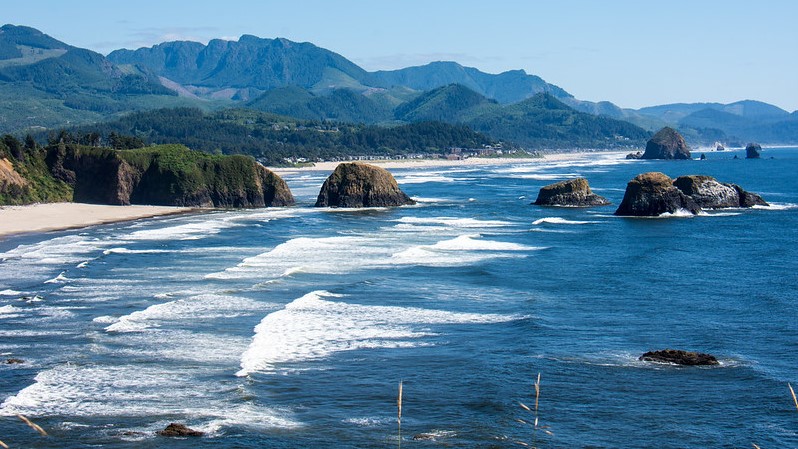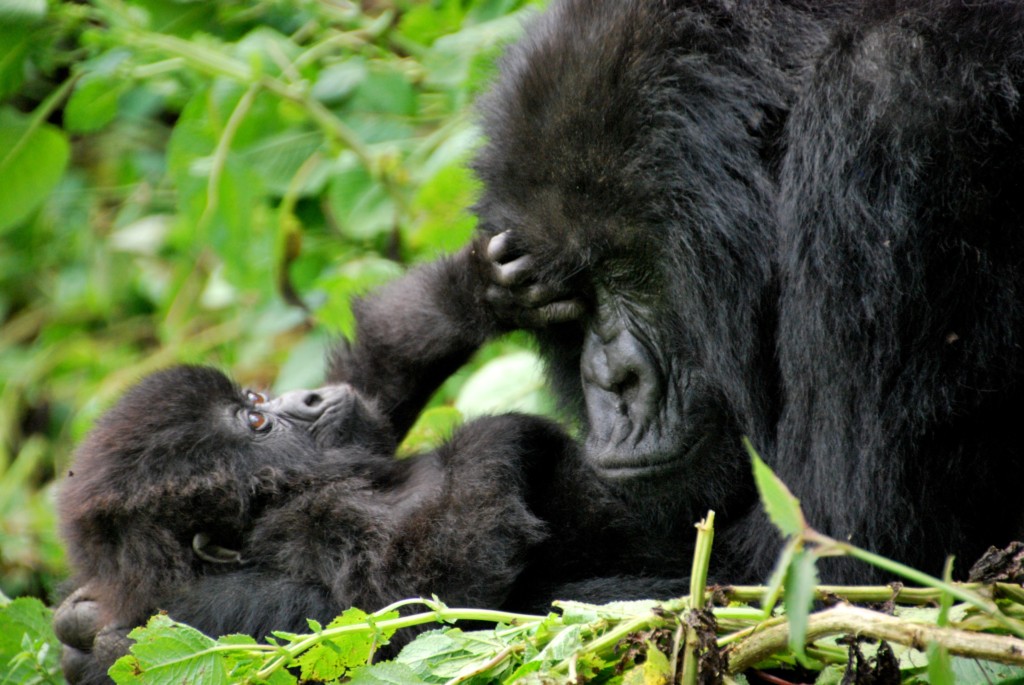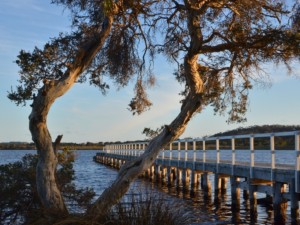Good news in tourism March 8 – 14, 2020

Published Sunday to be ready Monday, “Good news in tourism” is the perfect pick-me-up for the start of a new work week in travel & tourism. And go!
The World Economic Forum (WEF) describes itself as “a platform for the world’s 1,000 leading companies”. Mainstream media and politicians hang on to WEF’s every utterance, presumably because the group represents a massive chunk of global media spend and economic power.
Anyway, WEF has just told Argentina how it should proceed with travel & tourism in a new report entitled “Argentina’s Travel and Tourism Competitiveness: The Case for Promoting and Preserving Cultural, Natural and Heritage Assets in Tourism” [PDF hosted offsite].
The good news is that amid all the usual feel-good buzz phrases and after extolling the virtues of information & communications technology — including its potential to deliver overnight success (which can lead to bad outcomes for destinations) — the report acknowledges that residents should benefit from and feel invested in tourism growth.
“GT” would have liked to have seen stronger advocacy for host communities’ participation in destination planning all over the country, not just the cities. For it is locals who have most to lose should tourism get out of hand at their place. And it is locals who have the greatest vested interest in the sustainability of their place. It is, after all, their place.
Contrast that consultants’ white paper with a simple report by a local journalist who attended a meeting of the North Coast Destination Management Studio in Seaside, Oregon, USA. It is evident that state tourism authorities and local tourism experts place more importance on local community involvement than does WEF.
Travel Oregon VP Kristin Dahl described “a shift from destination marketing to destination management […] One of the critical changes is listening to the local bodies, listening to resident perspectives, listening to local businesses and jurisdictions and government agencies doing the work on the ground”.
Seaside-resident tourism expert Ken Heman said: “When this process began over a year ago, we invited any member of the Seaside community who wanted to take part to attend. It was open and announced often. I would love to see more residents of Seaside take a more active role.”

In terms of their people-first approach to conceptualising, planning, and managing travel & tourism, “GT” would sooner listen to Ms Dahl and Mr Heman than the “platform for the world’s 1,000 leading companies”.
But what would “GT” know?
Not a lot. Your correspondent is but a humble writer. While he rarely toots his own horn, he has in previous roles ghostwritten sugar-spun words for the pens and mouths of CEOs, executive directors, permanent secretaries, ministers, and even heads of state. And he is available for hire.
Diversity of thought is welcome on The “Good Tourism” Blog. Share your “Good Tourism” Insights. And a reminder: If you find “GT” content inspiring, interesting, somewhat amusing, or at least different then surely it’s worth a coffee or few …
COVID-19
As “GT” has repeated for weeks, the most credible source of information about COVID-19 is probably the World Health Organization (WHO). “GT” has no reason to stop trusting WHO just because their March 11 declaration of pandemic adversely affects travel & tourism and allied sectors. (It would be disingenuous to flip-flop.) Fortunately there is good news in the WHO statement: COVID-19 is “a pandemic that can be controlled”.
There is no reason to panic. There is every reason to be smart.
On the same day as WHO’s announcement, the “leading international organization in the field of tourism” — that’s how UN World Tourism Organization (UNWTO) describes itself — said that it would liaise with its members and the chairs of this and that committee, as well as “other UN bodies, including ICAO (International Civil Aviation Organization) and the IMO (International Maritime Organization), and with IATA (International Air Transport Association) [and other] key sector stakeholders to ensure tourism’s response is coordinated and consistent”.
Just a few days later, on March 14, UNWTO announced that it had suspended its own events until the end of April at least. And, at writing this, there was no accompanying statement related to UNWTO’s coordination with any other “key sector stakeholder”, ICAO, IMO, IATA, or otherwise of which “GT” was aware.
With their events calendars now clear, UNWTO’s bosses would do well to sit this coronavirus crisis out, let WHO take the lead, and have a good hard think about how it can possibly be the “leading international organization in the field of tourism”.
And do we even need such an organisation? If we sincerely believe in community-based tourism principles then tourism is everybody’s business. Leading it locally is very difficult — like herding cats. Leading it internationally may well be impossible. Tourism is, after all, a case-by-case, place-by-place proposition.
But what would “GT” know?

In other coronavirus-related tourism news:
Mountain gorillas are highly susceptible to human-borne diseases and might be threatened by COVID-19. The good news is that the International Gorilla Conservation Programme is using the COVID-19 moment to tighten the “Certified Gorilla Friendly” tourism standards it wants to see implemented in Rwanda, Uganda and the DR Congo.
While visitation rates are down due to COVID-19 fears, Malaysia’s Terengganu state government is upgrading tourism infrastructure. Terengganu’s Menteri Besar (Chief Minister) said fewer tourists would allow repair and beautification work to get underway. He also said they would produce new educational and promotional materials for tourists.
Philippines’ Tourism Undersecretary Arturo P. Boncato, Jr has reportedly said that the national tourism strategy during the COVID-19 pandemic is to improve destinations such as Boracay, including upgrading medical facilities and services available to visitors.
The state government of South Australia has announced a AUD 22 million (USD 14.3 million) “funding injection” for nature-based tourism in the wake of drought, bushfire, and now COVID-19. It is part of a broader AUD 350 million (USD 216 million) stimulus package for the state, but separate to a AUD 17.6 billion (USD 11.4 billion) stimulus for the country.
Kenya’s Ministry of Tourism has set aside KES 500 million (USD 4.88 million) for its post-pandemic recovery plan.
Electric aviation
To the extent aviation companies predict the electrification of commercial air routes, they think regional routes and urban mobility will be where it first takes off. And 2030 is realistic, they reckon.
“GT” pictures a return to the early days of commercial aviation when a series of short hops was how one flew around the world, such as the “kangaroo route” between Australia and the UK. Departing December 1, 1947, Qantas flew this route: “Sydney to London with stops in Darwin, Singapore, Calcutta, Karachi, Cairo, and Tripoli.” However it is likely the hops in early electric passenger planes will be shorter. But what would “GT” know?
Plans by Norway’s civil aviation administration and air navigation service to introduce “domestic scheduled services using electric aircraft by 2030, and the complete transition to electric aircraft on such routes by 2040” are to be “put to the country’s parliament” next year.
Climate change adaptation and resilience

Not airborne. And only useful if snow is still a thing. Engine manufacturer Rotax from Austria has unveiled the first zero-emission snowmobile, which has an electric drivetrain and a hydrogen fuel cell.
And that leads to another question: How can ski resorts become year-round tourism destinations that don’t rely on seasonal snow? Mountain tourism experts from Austria are sharing their insights with counterparts in Turkey.
At sea level, Barbados’ Minister of Economic Affairs and Investment Marsha Caddle recognises that rather than hoping for the best and relying on external forces beyond their control, small island developing states concerned about climate change should proactively seek out and invest in adaptation, resilience, and diversification.
That is a theme repeated across the Caribbean. Tourism stakeholders grappling with the symptoms of climate change want their sector to become more adaptive and resilient.
Collaborations
A collaboration between Indonesia and the Netherlands to create sustainable tourism in Lake Toba, Sumatra, Indonesia will implement the “Living Lab concept”, which combines “the strengths of educational and research institutions from both countries in collaboration with the local community, entrepreneurs and government”.
Under the Australia Awards Short Course program funded by the Australian Government, Griffith University and the University of the Sunshine Coast delivered a sustainable tourism development course to 19 tourism industry people from Sri Lanka, including representatives of the Tourism Development Authority and the Ministry of Tourism and Aviation.

India’s Madhya Pradesh state is so impressed with Kerala state’s Responsible Tourism Mission that it has asked the latter to help it realise the “community-oriented and heritage-preserving” benefits of responsible tourism. Madhya Pradesh and Kerala have signed a memorandum of understanding to that end. Kerala’s tourism minister Kadakampally Surendran said it was “a proud moment”.
Odds & ends
Newsy bits that don’t easily fit into this week’s arbitrary clusters:
Big numbers. Really? The municipal government of Xi’an in China will invest “13.7 billion yuan (about 1.97 *billion* U.S. dollars) for 23 cultural tourism programs this year”. This, from one city, is more than double what the National Development & Reform Commission, “China’s top economic planner”, has allocated cultural tourism country-wide: “5.7 billion yuan (about 814 *million* U.S. dollars) for the construction of 485 projects in [cultural tourism]”.
Nigeria’s President Muhammadu Buhar opened the 60th Argungu International Fishing and Cultural Festival in Kebbi State on Thursday after a hiatus of more than a decade. He said it signalled confidence in the country’s improved security situation, which would boost cultural tourism and the entertainment industry. Minister of Information and Culture Alhaji Lai Mohammed said the government would seek financial assistance from the African Import-Export Bank to build infrastructure to support the festival.
Have a good week!
Featured image (top of the post): Couple dancing in Argentina. Source (CC0).
To help your correspondent keep his energy-efficient lights on, please consider a private one-off gift or ongoing donation. THANK YOU to those who have! <3
Disclaimer 1: It is “GT’s” policy to fully disclose partner/sponsor content. If an item is not disclosed as partner or sponsor-related then it will have caught “GT’s” attention by some other more organic means. Partner with “GT”. You know you want to.
Disclaimer 2: None of the stories linked from this week’s post have been fact-checked by “GT”. All terminology used here is as the linked sources used it according to the knowledge and assumptions they have about it. Please comment below if you know there has been buzzword-washing or blatant nonsense relayed here, but be nice about it as the linked sources might get offended. (“GT” won’t.) And as for “GT” bringing it to your attention so that you might be the one to set the record straight, you are welcome! 🙂





